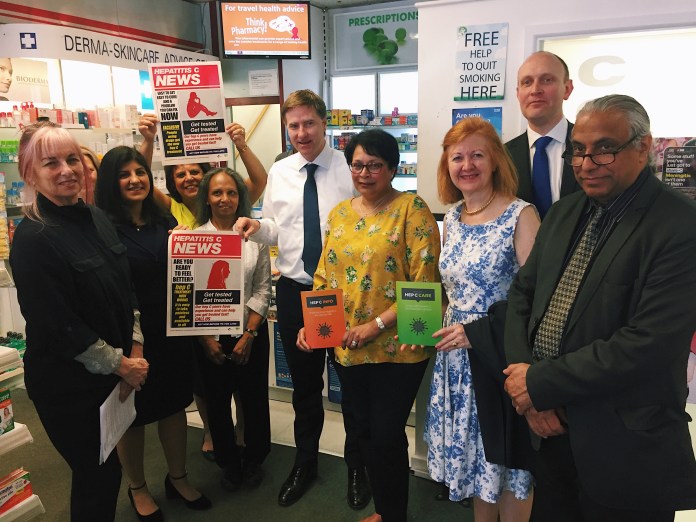A pilot project offering hepatitis C testing in pharmacies with needle exchange facilities has been hailed a success, with more than 50 per cent of those tested in the four-month scheme having hepatitis C antibodies. Almost 80 per cent of those who engaged with specialist services, meanwhile, had hep C viral particles in their blood.
A new report from the London Joint Working Group on Substance Use and Hepatitis C (LJWG) highlights the need for further awareness-raising, as 57 per cent of those taking part were unaware that medical advances meant the virus could be treated with oral tablets rather than painful interferon injections. The pilot – which was carried out at nine pharmacies across London – demonstrates the potential for offering treatment alongside testing, says LJWG, as 84 per cent of participants said they would be happy to receive treatment at their local pharmacy.

Innovative testing initiatives were essential in order to diagnose and treat everyone who has the virus, said public health minister Steve Brine, who added that the government was still working to eliminate hep C by 2025. It is thought that around half of the estimated 160,000 people in England living with the virus remain undiagnosed, and a recent report from the All Party Parliamentary Group on Liver Health stated that ‘significantly greater’ numbers of people would need to be tested, diagnosed and treated if it were to be successfully eliminated (DDN, April, page 4).
‘This project is another great example of how community pharmacists and their teams can support the health of their local communities and engage with people who may be reluctant to go to their GP,’ said chief executive of Kensington, Chelsea and Westminster Local Pharmaceutical Committee, Rekha Shah.
‘We now have the treatments to eliminate hepatitis C as a serious public health concern in the UK,’ added LJWG co-chair and consultant hepatologist at Chelsea and Westminster Hospital, Dr Suman Verma. ‘Offering free, accessible hepatitis C testing in community pharmacies is a more patient-centric way of engaging with a group of vulnerable, young people where hepatitis C prevalence and risk of transmission is high but, due to personal and social circumstances, engagement with community drugs services or healthcare services in general is poor and sporadic.
‘By offering hepatitis C testing in community pharmacies, we will transform and save lives as well as preventing further virus transmissions. This pilot project has the potential to be developed further to encompass the provision of hepatitis C antiviral treatment directly in the community pharmacies for this vulnerable, socially marginalised, at-risk population.’
Read the report here
